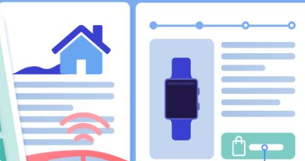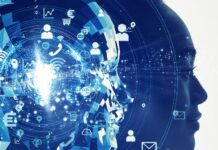In answering this question, I was tempted to utilize the Chatbot OpenAI app released last November, ChatGPT, to write this month’s column, but decided to go old school and research and share some basics of what I discovered.
All the big players are involved in Artificial intelligence (AI), and the latest iteration is called Generative AI. Google partnered with Anthropic and has Bard; Microsoft has partnered with OpenAI and embedded ChatGPT into Azure, Bing and Skype; and Amazon just partnered with Hugging Faces and has been using AI with its Echo product line since introduced in 2014. All three are funding and partnering with AI startups to drive the development of AI. Let’s not forget the granddaddy of computing, IBM, which has Watson Orchestrate and AIOps.
AI is becoming increasingly important in our daily lives. AI can automate routine and time-consuming tasks, allowing us to focus on more important activities. In addition, AI algorithms can analyze vast amounts of data to personalize products, services and experiences. Moreover, AI is driving innovation in numerous industries, such as finance, retail and education.
Here are a few examples of how AI is impacting our daily lives.
Personal Assistants: AI-powered personal assistants, such as Siri, Google Assistant and Amazon Alexa, are integrated into smartphones, smart speakers and other devices and can perform a wide range of tasks, from setting reminders and sending messages to playing music and controlling smart home devices.
Social media: Social media sites utilize AI to examine user preferences and behavior, suggest pertinent material and customize the user experience. Moreover, bogus news, hate speech and other harmful content are found and eliminated thanks to AI systems. For instance, Meta uses AI to detect and remove fake news and other harmful content. Instagram uses AI to recommend posts and stories based on user behavior. TikTok uses AI to personalize the user experience and recommend videos.
Customer service: Businesses are increasingly using virtual assistants and chatbots powered by AI to offer 24/7 customer service. Natural language processing is used by these chatbots to comprehend consumer questions and deliver relevant responses. For instance, many companies, such as H&M, use AI-powered chatbots to provide customer support. These chatbots can handle a wide range of queries, such as tracking orders and processing returns.
Healthcare: Applications of artificial intelligence in healthcare include patient monitoring, medication research and medical imaging. Medical picture analysis, anomaly detection and diagnosis support are all capabilities of AI algorithms. For instance, Merative (formerly IBM Watson Health) uses AI to analyze medical images and assist doctors in making diagnoses. The app Ada uses AI to help users identify symptoms and connect with healthcare professionals.
E-commerce: Customers are given product recommendations by e-commerce sites, such as Amazon, using AI algorithms based on their search queries, browsing histories and other information. Sales are boosted as a result, and customer satisfaction is enhanced.
Autonomous vehicles: AI is used in self-driving cars, trucks and buses to allow them to perceive their environment, map out routes and make judgments while driving. It is anticipated that this technology will lessen collisions, gridlock in the streets and pollutants. For instance, Tesla uses AI to power its self-driving cars.
Smart home devices: Smart home devices such as thermostats, lighting systems and security systems use AI to learn user preferences and adjust settings accordingly. These devices can also be controlled remotely using smartphones or voice commands. For instance, Philips Hue uses AI to adjust lighting based on user preferences and ambient light levels and Google Nest uses AI to conserve energy with a Green Leaf setting in its thermostats.













